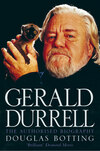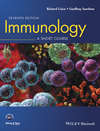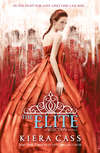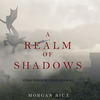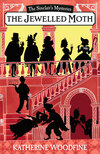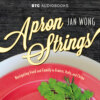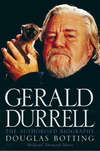Kitabı oku: «Gerald Durrell», sayfa 8
Every able-bodied man and every horse had been mobilised. Corfu town was swarming with people looking for a way to escape, and huge naphtha flares burned on the boats that were unloading bullets and flour at the docks. In Kalami children were weeping in the garden, and Cretan infantry were marching about, ‘smelling like hell, but with great morale’. The local commander was planning to rig up torpedo tubes outside the White House and to mine the straits. Then all the men of the village were sent inland to a secret arms dump, including Anastassiou, ‘our suave, cool, beautiful landlord, too feminine and hysterical to handle a gun’. Only the women were left, weeping around the wells, and the uncomprehending children. ‘I had nothing to say goodbye to except the island,’ Lawrence wrote. ‘I ached for them all.’
Frantically Lawrence and Nancy prepared to leave, destroying papers and drawings, packing the few books they could carry. The little black and brown Van Norden would have to be left behind, and Nancy’s paintings – ‘lazy pleasant paintings of our peasant friends’ that hung on every wall. In weird, autumnal weather, clouds piled high over Albania, the narrow straits like a black sheet, the thin rain falling ‘like Stardust’, they boarded a smoky little Athens-bound steamer at Corfu quay and fled the island. ‘I remembered it all,’ he was to write, ‘with a regret so deep that it did not stir the emotions … We never ever speak of it any more, having escaped.’
Only Margo was left. Before his departure Lawrence had advised her that, should trouble come, she should sail the Van Norden down the Ionian Sea and into the Aegean to Athens – no mean voyage, especially as she had never handled a boat in her life. But she had no fears for her future: ‘I was young, and when you’re young you’re not frightened of anything.’ She had taken to going into Corfu town to hear the news reports and war bulletins relayed to the populace in the Platia, the central square. There, over a coffee or iced drink, she sometimes met up with the Imperial Airways flying-boat crews who were still operating the Mediterranean leg of the Karachi-UK air link. The airmen were aghast at her plan to ride out the war in the Corfu hills, and urged her to leave before the island was invaded and all communications with the outside world were cut. She became friendly with one officer in particular, a dashing young flight engineer by the name of Jack Breeze, and it was he who finally persuaded her to pull out and provided her with the means of doing so. Shortly after Christmas Margo was packed on to one of the last British aircraft flying out of Corfu, and left the island of her young womanhood for ever.
In October 1940 Italian forces entered Greece, and the following year they occupied Corfu. The White House at Kalami lay abandoned, and Larry’s little cutter sunk. Below the Strawberry-Pink Villa, where the boy Gerald had first strode out to explore the wild interior, the Italians built a huge tented camp, where they kept their ration store and marched their soldiers up and down. Later the Germans moved in, strafing the causeway and the chessboard fields of the Venetian lagoon where Gerald had once stalked Old Plop the terrapin, and bombing the old town, killing Theo Stephanides’s parents and Gerald’s tutor Krajewsky and his mad mother and all his birds. What fate befell the boy Gerald’s great manuscript novel of the flora and fauna of the world will never be known.
The Durrell family had been driven from Eden, swept away by the fury and folly of war. All they were left with from their island years were a few crumpled photographs and the memories of a magic life that for long afterwards continued to burn in their minds as vivid and bright as the sun itself.
It was in large part Corfu that made Gerald the person he was to be. But on the island he had known only love and affection, happiness and ease. As a result he was to be ill-equipped for the vicissitudes of real life, which one day would do their best to cut him off at the knees.
Looking back from the hard world beyond the walls of that enchanted garden, Lawrence was to observe many years later: ‘In Corfu, you see, we reconstituted the Indian period which we all missed. The island exploded into another open-air time of our lives, because one lived virtually naked in the sun. Without Corfu I don’t think Gerry would have managed to drag himself together and do all he has achieved … I reckon I too got born in Corfu. It was really the spell between the wars that was – you can only say paradise.’
FIVE Gerald in Wartime England 1939–1945
Mother, Leslie and Gerald were back in England before war was declared on 3 September 1939. The dogs were put in quarantine the moment they landed, and the rest of the animals Gerald had brought back from Corfu, plus a marmoset and some magpies he had acquired in England, were housed on the top-floor landing of a London lodging house which Mother rented while she looked around for a more permanent home. Before long they had moved to a flat in a terraced house off Kensington High Street. Mother hankered to return to Bournemouth, where at least she had roots of a kind, and whenever she went off on one of her many forays into various part of the countryside in search of a house, the fourteen-year-old Gerald – now wearing his first pair of long trousers – was free to explore the capital. ‘I found London, at that time, fascinating,’ he would later recall. ‘After all, the biggest metropolis I was used to was the town of Corfu, which was about the size of a small English market town, and so the great sprawling mass of London had hundreds of exciting things for me to discover.’
Sometimes he would spend the afternoon in the Coronet cinema round the corner, absorbed in the illusory adventure and romance on the silver screen before him – a lifelong passion. At other times he would go to the Natural History Museum or the zoo, which only strengthened his belief that working in a zoo was the only real vocation for anyone.
It was in the London of the so-called ‘Phoney War’ – no air raids as yet, no nights spent in cellars or bomb shelters – that Gerald started his first job, as junior assistant in a pet shop called The Aquarium, not far from where he was living. It was a remarkably well-stocked shop, with rows of great tanks full of brilliant tropical fish, and glass-fronted boxes containing grass snakes, pine snakes, big green lizards, tortoises, newts with frilled tails like pennants and gulping, bulbous-eyed frogs. His job was to feed all these creatures and clean out their tanks and cages, but it soon became clear that he knew a great deal more about their needs and habits than the shop’s owner, who was astonished by the boy’s detailed knowledge and instinctive feeling for the animals’ welfare.
Before long Gerald had introduced a change in the creatures’ previously unvarying diet, forgoing his lunchtime sausage and mash in order to collect woodlice in Kensington Park for the reptiles and amphibians, and tipping pots of little water fleas into the fishtanks as a change from the fishes’ usual fare of tubifex worms. Then he began to improve the animals’ living conditions, putting clumps of wet moss into the cages of the large leopard toads so that they had some damp and shade, bathing their raw feet with olive oil and treating their sore eyes with Golden Eye ointment. But his pièce de résistance was the redecoration of the big tank in the shop window, which contained a large collection of wonderfully coloured fish in what looked like an underwater blasted heath.
I worked on that giant tank with all the dedication of a marine Capability Brown. I built rolling sand dunes and great towering cliffs of lovely granite. And then, through the valleys between the granite mountains, I planted forests of Vallisneria and other, more delicate, weedy ferns. And on the surface of the water I floated the tiny little white flowers that look so like miniature water-lilies. When I had finally finished it and replaced the shiny black mollies, the silver hatchet fish, the brilliant Piccadilly-like neon-tetras, and stepped back to admire my handiwork, I found myself deeply impressed with my own genius.
So was the owner. ‘Exquisite! Exquisite!’ he exclaimed. ‘Simply exquisite.’ Gerald was promptly promoted to more responsible tasks. Periodically he was sent off to the East End of London to collect fresh supplies of reptiles, amphibians and snakes. ‘In gloomy, cavernous stores in back streets,’ he remembered, ‘I would find great crates of lizards, basketfuls of tortoises and dripping tanks green with algae full of newts and frogs and salamanders … and a crate full of iguanas, bright green and frilled and dewlapped like any fairytale dragon.’ On one such jaunt 150 baby painted terrapins escaped from the box in which he was carrying them on the top of a double-decker bus. But for the help of a Blimpish, monocled colonel who also happened to be on the bus and who crawled up and down the aisle ‘heading the bounders off,’ Gerald would have experienced the first catastrophe of his professional career. ‘By George!’ cried the colonel. ‘A painted terrapin! Chrysemys picta! Haven’t seen one for years. There’s one going under the seat there. Tally-ho! Bang! Bang!’
By the time Mother had found what she was looking for, a family-sized house at 52 St Alban’s Avenue in the Bournemouth suburb of Charminster, much of the family was dispersed to the four winds. Lawrence and Nancy were in Athens, where their daughter Penelope was born in April 1940. Early that year Lawrence got word that his sister Margaret had married her flier, Jack Breeze, in Bournemouth, with Leslie (who was living in the house in St Alban’s Avenue) giving the bride away. When Jack was posted to South Africa with Imperial Airways, Margaret went with him, and she was to spend the whole of the war in Africa, moving gradually north, first to Mozambique and then to Ethiopia, till, like Larry, she ended up in Egypt.
When the German armies crossed the Greek border and rolled south towards Athens in April 1941, the king and government left the capital for Crete, and Lawrence and Nancy followed their example. It was a perilous and close-run thing. They escaped from the Peleponnesus by caïque one day before the Germans invaded, and after six nightmare weeks under German air attack in Crete they left on almost the last passenger ship to get out, arriving in Alexandria two days before Greece fell. Lawrence soon got a job as foreign press officer at the British Embassy in Cairo, and was to remain in Egypt for the rest of the war, but in July 1942, with the Egyptian cities under threat from the advancing Germans, Nancy and Penelope were evacuated to Palestine, a parting which effectively marked the end of the marriage. A year later Lawrence fell in love with an Alexandrian girl, Eve Cohen, who was eventually to become his second wife.
For Mother, the move back to England, with its blackouts, gasmasks and ration books, was just one more in a series of upheavals that had punctuated her life ever since, far away and long ago, she had married her much-loved and much-missed husband in India, the land of her birth. To this latest uprooting she responded as she had always done – without complaint, without fuss, making do, always there. But after the cheap living and favourable exchange rate of the Corfu years, the move back to England was a backward step financially, and leaner times now loomed. Much of the money her husband had left to her had been dissipated in imprudent disbursements before the war, and when in due course the Japanese overran Burma a substantial proportion of her remaining assets, which were invested in Burmah Oil, were lost for ever. The steady decline in the family’s standard of living in Bournemouth during the war was barely perceptible to friends and relatives who saw them on a regular basis, but to Lawrence, who was away for all of that time, its extent was quite shocking when he saw it for himself on his return.
For all that, Louisa continued to cluck and fuss over her remaining brood, an unfailing (if faintly vague) source of culinary aromas and mother love for the two sons still in her care. But for Leslie, sadly, the return to England marked a big step in his gradual descent into waste and oblivion. At the outbreak of hostilities he had hoped to join the Royal Air Force, which had both glamour and guns galore. But he had loosed off one shotgun too many in his time on Corfu, and a military medical board declared that his hearing was defective, and that he was unfit for military service. Barred from doing his bit with the RAF, Leslie was condemned to spend the war toiling away at inglorious, menial tasks in the local aircraft factory.
As for Gerald, now fifteen, the retreat to Blighty – from a sun-drenched Mediterranean island to whose human and animal fauna he had closely related, to a mist-shrouded North Sea island to which he barely related at all – was more than just a migration from one kind of habitat to another: it was like a flight into limbo, an existential near-void about which he was to say little in future years, and to write next to nothing till near the very end. The shock was palpable, and considerable adjustments were required for him to adapt to his new physical and cultural environment.
Gerald was no longer a boy, but an adolescent, with all that that turbulent transitional phase of development entailed. He was also, as a result of his upbringing on Corfu, part Greek in manners and outlook. More, he had no education – none, at any rate, that the authorities in the United Kingdom would recognise as such. Nor was he ever likely to receive any, for he was now almost past the statutory age of compulsory education in Britain. Not only had he long ago parted company with any school syllabus worthy of the name, but he stood no chance of passing any exam of any sort anywhere at any time.
Not that Mother didn’t give his education one last try, taking him along to a minor public school outside Bournemouth in the hope that the place might fire his enthusiasm. The visit was only a partial success. The headmaster chose to test the boy’s scholastic potential by asking him to write out the Lord’s Prayer, but Gerald could only remember the first six words, and invented the rest. A visit to the labs with the biology master was more promising – the man turned out to have once spent a holiday in Greece – but Gerald was rated no higher than ‘backward but bright’. Not that it mattered much, for Gerald had no wish to go to any school.
Believing, as always, that her children knew what was best for them, his mother tried a private tutor instead. Harold Binns was a neat, quiet man, with a face scarred by shrapnel in the Great War. He had written a study of the English poets, and was oddly addicted to eau de Cologne, often popping into the toilet to give himself a quick squirt. Mr Binns bestowed two great gifts upon his ill-educated student – how to unlock the treasures contained within the British public library system, and how to appreciate to the full the words of the English language in all their associations and assonances, nuances and overtones. His method was to teach Gerald for an hour, then fetch a volume of verse from his bookshelf for Gerald to browse through on his own. In an unpublished autobiographical fragment written in the last year of his life, Gerald recalled Mr Binns and the excitement he generated for the music and the magic of the language.
He would burst into the room in a tidal wave of eau de Cologne. ‘Now, dear boy,’ he would say, eyes raised to Heaven, hands outstretched. ‘Time to remove the cobwebs from the mind, eh? Leave that geometry which appears insoluble to you and let’s have a look at Swinburne. You know Swinburne? I think you’ll find he has something in common with you – yes – um – yes – um – this for a start.’
He would thrust a book into my hands and gallop out of the room trailing eau de Cologne like a bride’s train behind him.
A little later, bustling back into the room, he would ask: ‘Did you like him?’
‘I think the poetry is fascinating,’ I said, ‘and I love alliteration.’
‘So do I,’ he said fervently. ‘The whole poem is an example of what poetry should be. So few modern poets chime in the ear like a seashell whispering mysteries. At least he conjures up lantanas in your mind, illuminating your brain with fabulous words …’
All this was a revelation to Gerald, and would greatly influence him, as brother Larry had previously done, in his approach to his own writing.
While Mr Binns endowed Gerald with access to knowledge and reinforced the love of words Lawrence had encouraged on Corfu, there was no one to teach him the biology which fascinated him. Working his way at random through the textbooks in the Bournemouth public library and elsewhere, Gerald taught himself as best he could. There were advantages to this eclectic exploration of the subject, for it allowed him to approach it from eccentrically revelatory angles. But there were enormous disadvantages too, great gaps in his knowledge, and his grasp of the science could hardly be said to rest on sound foundations.
He was always conscious of this, especially when he became a high-profile practitioner and spokesman of the very science he had never been formally taught. Much later, he was to say:
Yes, a degree might have helped – but would it? In the long run it might have killed the other side of me. Because of no job, which was because of no degree, only the need to write for a living compelled me to write at all. Also, the degree idea is waved about like a flag to such an extent that one thinks one needs it – when it’s only society needing it. These absolute dolts in my own field have the application to store knowledge like a squirrel and regurgitate it all over ruled paper at the right moment. That shows a sense of inferiority on my part, doesn’t it?
More than compensating for his lack of formal qualifications, Gerald was endowed with a highly developed and inventive intelligence. His Corfu childhood under the tutelage of Theo Stephanides had provided him with a superlative insight into the phenomena of natural life, an education in hands-on biology largely denied to his peers in the United Kingdom, and his brother Lawrence had instilled in him the principles of creative literature in a way no classroom lessons could have done. The rest of the family, his mother especially, also contributed. ‘She encouraged us in everything we wanted to do,’ he was to recall. ‘She would say, “Well, try it, dear,” and if it failed, it failed. I was allowed to read anything I wanted to. Every question I asked was answered absolutely honestly, if it could be answered. In a funny way, I got a unique education which included dealing with an endless procession of eccentrics – so now, nothing a human being does surprises me.’
But his grasp of the mainstream of schoolboy learning – sums and stinks and 1066 and the rest – was patchy and uncertain. Gerald was therefore a highly unorthodox teenager in the Britain of his time. The familiar routine of morning assemblies and school games and end of term exams had passed him by. His primary education was fragmentary, his secondary education nil, his chances of higher education non-existent. For a youth with such an apparently oddball background there was only one option in wartime Bournemouth – to get a job, probably a mundane and lowly one, until he was old enough to be called up and have his head shot off in the war.
The only job that Gerald could imagine tolerating was working with animals. Though it doesn’t sound much, for Gerald a day spent in a pet shop in the company of white rats was not a day wasted. He had managed to run an aviary and keep a few adders in the garden at home during these years, but the largest animal he had to cope with was a fallow deer which was given to him by a boy who lived in the New Forest and was moving to Southampton. The boy had described it as a ‘baby’ and a ‘household pet’, but when it arrived it turned out to be a petulant creature at least four years old – far from the submissive, friendly fawn Gerald had been promised. With much patience he eventually learned how to pacify the deer, which he named Hortense, by scratching the base of its antlers, but in the end he had to give way to family pressure, and Hortense was exiled to a nearby farm.
As for the war, though a few stray bombs did land on Bournemouth, one of them rocking the treasurehouse of Commin’s bookshop, Gerald admitted that he did not really know what war was, nor care very much about it.
We used to see Southampton get a pasting, eagerly enjoying the eastern sky aflame, and there were plenty of jolly dogfights upstairs – but on the whole we had a cushy war. The entire family did. We were pinned to the nine o’clock news, cheering for victory, and I followed daily the progress of the battles on whatever front it was … but only selfishly. I wanted to get the war over as fast as possible and do something interesting, like return to Greece and see how the Germans had behaved to the swallowtails and trapdoor spiders. Even so, I spent every moment out of doors – aged fifteen to twenty – risking death at the hands of the bombers on the way to Coventry or somewhere that really copped it. I helped with the harvest. I went out – not on a donkey now, but a bicycle – looking for nests and animals, rediscovering the local fauna with more patience and a maturer knowledge, like waiting for the bird to return to her nest to make sure of the species, at any hour of day or night, because I was used on Corfu to regarding the villa merely as a dormitory. The outside was home. Two hundred yards from the house I had the woods to keep an eye on, and then at the end of the road the golf links, beyond which the country started. The real country. Bournemouth in my time was a country town. It was ideal from my point of view – though of course it wasn’t Corfu.
The ‘real country’ was the moorlands of the Purbecks, the wilder woodlands of the New Forest, the broad sweep of shore and water around Poole Harbour. Once he went much further afield, on a bird-watching holiday to the outlying Scilly Isles, beyond the western tip of Cornwall.
Gerald found England stiff and starchy after the relaxed lifestyle of his Mediterranean island, especially when it came to sex and girls. He had reached puberty on Corfu, and with a little help from a young local girl he had discovered sex – or at least its preliminaries – without suffering any of the inhibitions and sense of guilt that tormented so many of his contemporaries in England. On Corfu sex had seemed something pure and natural – a romp and a tumble in the olive woods and myrtle groves, a giggle and a tangle of limbs.
On Corfu all his tutors had taught him about sex, and it was discussed quite freely at home. In England, by contrast, it was Presbyterian black and sin-laden. ‘I couldn’t understand why in England boys of my age found something dirty and furtive about it. And I was soon to realise with girlfriends in Bournemouth that I couldn’t treat them with quite the same gay abandon in case they thought me naughty and wicked. In some confusion I was forced to retreat to a chaste and stolen kiss on the brow. It was like being suddenly flung out of Rabelais into William Morris.’
Gerald was a good-looking youth, with an attractive, open face and engaging manner. His good looks were almost to prove his undoing when a local girl was raped, strangled and mutilated, and her body found under the rhododendrons in one of the local beauty spots called the Chines. The Bournemouth Echo reported that the police were anxious to interview a tall, fair young man with blue eyes and a charming personality – Gerald to a tee. Mother, of course, immediately saw the hempen rope being adjusted around her son’s neck.
‘You’re not to go out, dear,’ she warned Gerald. ‘You might be arrested as the murderer. You’re to stay at home. You know what the police are like. Once they’ve arrested you they’ll never stop till they’ve hung you. And hanging’s no laughing matter.’
Within a day or two, a couple of detectives did indeed call at the house in order to eliminate the young naturalist from their inquiries. Satisfied with Gerald’s answers to their questioning, they left without even taking his fingerprints. When they had gone, Mother reappeared.
‘Now, tell me what you said, dear,’ she insisted. ‘It’s very important to get our stories to match when we’re in court.’
In some ways Gerald at this time was almost feminine in his looks. But he did his best to disguise it, partly because he had found, to his embarrassment, that he was becoming attractive to homosexual men. This sometimes got him into difficulties, and was all the more galling because he was totally heterosexual himself. ‘In those days I used to plaster my pale blond hair with vaseline,’ he recalled, ‘hoping it would become a manly dark brown and thus attract all the ladies who would otherwise have thought me too weak and pretty. Little did I know that this treatment plaited my long locks into something closely resembling an eel migration of some magnitude and only the kindliest and ugliest of girls would consent to be seen with me.’
This phase didn’t last long, and soon Gerald’s interest in girls was matched by his ability to arouse their interest in him. ‘I’ve always had a fair amount of attraction for women,’ he said, ‘but I hope I’ve never used it – except to seduce them, of course.’ He was, he reckoned, a consummate seducer, though never a cynical or dishonest one: ‘I treated women as human beings, which is of course fatal.’ In the early days of what he would later refer to as his sexual career it was all pretty much hit and miss anyway: ‘I must admit that at the age of sixteen I was still of the opinion that the idea was “to get the girl aboard the lugger” and that was the end of it.’
As well as appreciating their physical allure, Gerald genuinely liked and respected the opposite sex. Perhaps because, unlike most English boys of his class and generation, he had not been to boarding school, he felt at ease in the company of women and at home with the feminine side of human nature. Indeed, he preferred the company of women to that of men, though on the whole he trusted animals more than either. He could admire, and sometimes even adore, individuals of the opposite sex, but he never entirely lost his head over them. In any case, he was continually reminded of the fact that women could be as flawed and clay-footed as the rest of the human species, as an incident towards the end of the war years forcibly reminded him:
Dark hair, huge glistening eyes, like chestnuts newly polished, a face composed and gently supported by bone structure as beautiful as a coral reef. A mouth moist, wide and gentle, a loving mouth. A body as eloquent as a teenage birch tree. Brown hands like starfish, which when they moved illuminated what she was saying, as a conductor to an orchestra. She was a girl who not only filled your eye and heart but made you stop and listen to the magic of her voice and the tapestry of what she said. Her wonderful head carefully positioned on a neck as slender and beautiful as Nefertiti’s. I longed to know her, to have the privilege of taking her into a secret garden full of night jasmine, tangerine and flowering creatures that would attempt to emulate her beauty but could only enhance it. She was the pure Garden of Eden for which Adam sacrificed his navel. For her I would have sacrificed much more. The waiter brought the bill and I paid. As I passed the table of this lovely, delicate paragon I heard her say – loud as a conch shell being blown – ‘You stupid, sodding twit, I can’t think why I married you. Your balls are as big as warm eggs and as much use.’ I have never felt the same about women since.
In his early manhood Gerald’s sex appeal was so overt and palpable that it was assumed by those who did not know him that he was a ladykiller. In his maturer years his tendency to flirt with every woman in the room led many to believe he was a womaniser. In his old age he told so many stories about the intimate encounters of his youth that he gave the impression his bachelor years had been one long serial orgy. All this probably exaggerates his sexual propensities. ‘He wasn’t a particularly sexy man,’ Margaret remembered. ‘I mean, I don’t think he was a highly sexed man, to be honest – not like Larry – and though he gave the impression that he was to some people, and sometimes even said he was, it was really just flirting, purely harmless. In fact I would say Gerry was more mother-orientated than sex-orientated. Sex was probably the dream but I honestly don’t think it was his scene. Basically he didn’t like to be on his own. He always liked to have a woman around, even if she was only messing about in the kitchen.’ In his later years Gerald was to confirm his sister’s view: ‘I wasn’t too preoccupied with sex, because I had too many other matters to absorb me … I wouldn’t worry if nothing happened.’
Among the other matters that absorbed the young Gerald was his dedicated self-education. He spent a lot more time with books than he ever did with girls. Books were his entrée into another world, a world of boundless knowledge and endless diversion, an alternative world of the imagination, a real world of science and fact. He worked the public library system for all it was worth, and when he could afford it he bought books at Commin’s in Bournemouth town centre. Later he was to say: ‘I believe that books are an essential of life. To be surrounded by them, to read and re-read them gives you a carapace of knowledge so that you can lumber through life, as a tortoise does, carrying a library in your skull. Books surround you like a womb of knowledge.’
